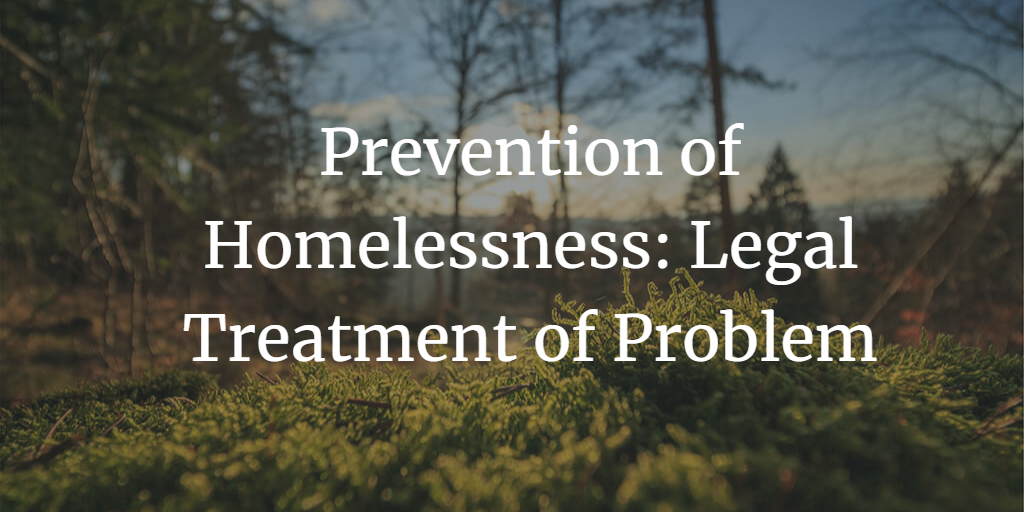Prevention of Homelessness: Legal Treatment of Problem

Table of Contents
Introduction
Extent of Homelessness in India
Legal Framework for Addressing Homelessness
Government Initiatives
Challenges in Tackling Homelessness
Recommendations
Conclusion
Introduction
Homelessness is a complex social issue affecting millions of people in India. This article examines the legal treatment of homelessness in India, the challenges faced in addressing the problem, and the potential solutions to prevent and alleviate homelessness.
Extent of Homelessness in India
Homelessness in India is a widespread issue, with millions of people living without access to adequate housing, basic amenities, and social security. The reasons for homelessness are diverse, including poverty, unemployment, migration, lack of affordable housing, and social exclusion.
Legal Framework for Addressing Homelessness
India's legal framework for addressing homelessness includes:
Right to Life: The Constitution of India guarantees the right to life under Article 21, which has been interpreted by the Supreme Court to include the right to live with dignity and basic shelter.
Right to Housing: The right to adequate housing is recognized as a fundamental human right by the United Nations, to which India is a party. However, this right has not been explicitly incorporated into Indian domestic law.
Government Initiatives
The Indian government has launched several initiatives to tackle homelessness:
Pradhan Mantri Awas Yojana (PMAY): This scheme aims to provide affordable housing to all by 2022 through financial assistance, partnerships with the private sector, and land allocation.
Shelters for the urban homeless: The National Urban Livelihoods Mission (NULM) focuses on providing shelter and basic services to the urban homeless.
Challenges in Tackling Homelessness
Despite the legal framework and government initiatives, homelessness remains a pressing issue in India due to:
Lack of affordable housing: A shortage of affordable housing options exacerbates the problem of homelessness.
Inadequate implementation: The implementation of government schemes and policies often suffers from delays, bureaucratic hurdles, and corruption.
Social stigma: Homeless individuals face social stigma and discrimination, further marginalizing them and limiting access to services.
Recommendations
To effectively address homelessness in India, the following measures can be taken:
Strengthen legal protections: Incorporate the right to adequate housing explicitly into domestic law to strengthen legal protections for the homeless.
Improve implementation: Enhance the implementation of government schemes and policies by simplifying processes, increasing transparency, and holding officials accountable.
Promote affordable housing: Encourage the construction of affordable housing through incentives, public-private partnerships, and land allocation.
Raise awareness: Conduct awareness campaigns to address social stigma and discrimination against homeless individuals.
Conclusion
Preventing homelessness in India requires a comprehensive approach that includes legal reforms, improved implementation of government initiatives, and increased awareness about the issue. By addressing the root causes of homelessness and providing adequate support and resources, India can work towards ensuring a secure and dignified life for its homeless population. Collaborative efforts from the government, private sector, NGOs, and society at large are essential to make a meaningful difference in the lives of those affected by homelessness.


